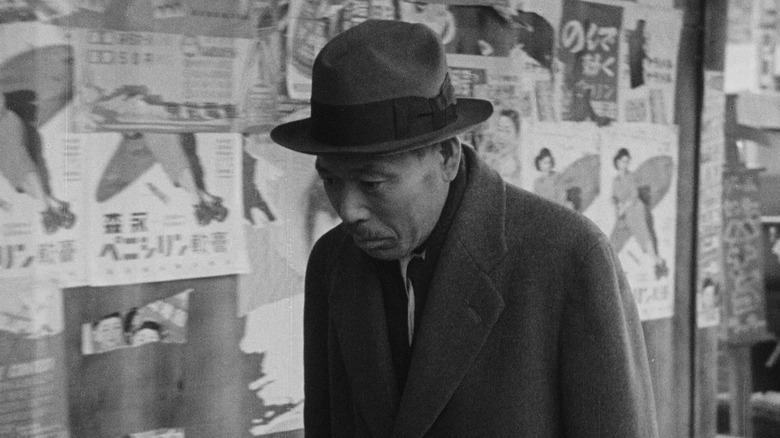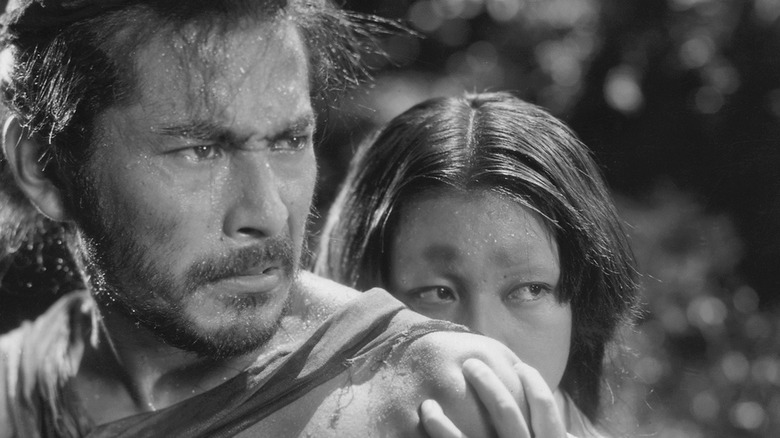The One Trait That Ties Together Akira Kurosawa's Favorite Directors
Akira Kurosawa is your favorite director's favorite director, but do you know his favorite directors? The acclaimed Japanese filmmaker is primarily known for his historical epics and samurai films, including "Seven Samurai" and "Rashomon."
Kurosawa was heavily inspired by the cowboys in American Westerns, and in turn, many spaghetti Westerns were heavily inspired by Kurosawa. The director once told Dick Cavett that he "love[s] the movies of John Ford," the acclaimed American director known for Westerns like "The Searchers."
The epic scale and action-heavy narratives in Kurosawa's films are often cited as the director's appeal to international audiences, and they also link them to American Westerns. But the often heavy focus Kurosawa trained on personal drama correlates even deeper with Western storytelling. His 1952 film "Ikiru" tells the story of a man suffering from terminal cancer, trying desperately to make his final days meaningful. This drama is universally heartbreaking. It gets at fears and longings that are purely human. This is what Kurosawa himself valued most in films. "A person who is able to make good films," the director told Maani Petgar, "knows how to find his or her way into the viewer's heart" (via Cinephilia & Beyond).
Good people make good films
To pull on viewers' heartstrings, Kurosawa insisted that a director must have a "humane character." He cited a list of filmmakers who exemplify this quality, including "John Ford, Jean Renoir, John Huston, Federico Fellini, Angelopoulos, [and] Sidney Lumet." Kurosawa continued to explain that he'd "met every one of them, and have spoken to them. Just as they have exceptional works, they were also very distinguished in character." Their personable natures bled into their work, allowing their characters to "express human problems in a natural way." People that are easy to connect with will make films that are easy to connect with too.
Kurosawa was close friends with Sidney Lumet, who made films like "Serpico" and "Dog Day Afternoon." Like Kurosawa, Lumet's films centralize large-scale action and riveting drama. Lumet admired Kurosawa since his 1950 film "Rashomon," which he found "magnificent." When they got together, Kurosawa swore that they would "never discuss cinema. We generally discuss trivial matters ... and we quite enjoy it."
In fact, Kurosawa didn't enjoy discussing films in interviews either. "Reporters always ask me what the content of my film is and I tell them that there is no such thing. I say ordinary things. A film is not supposed to be a lecture," he mused. Lots of people would agree with him, myself included. To paraphrase David Lynch, cinematic language should speak for itself; it shouldn't be translated into English.
If you are wowed by the spectacle of Kurosawa's movies, consider taking a closer look. They are dense with human drama, which makes them appealing to audiences around the world. This is the thread that ties all of Kurosawa's favorite directors together, and it can be found running along the seams of all of his films too.

